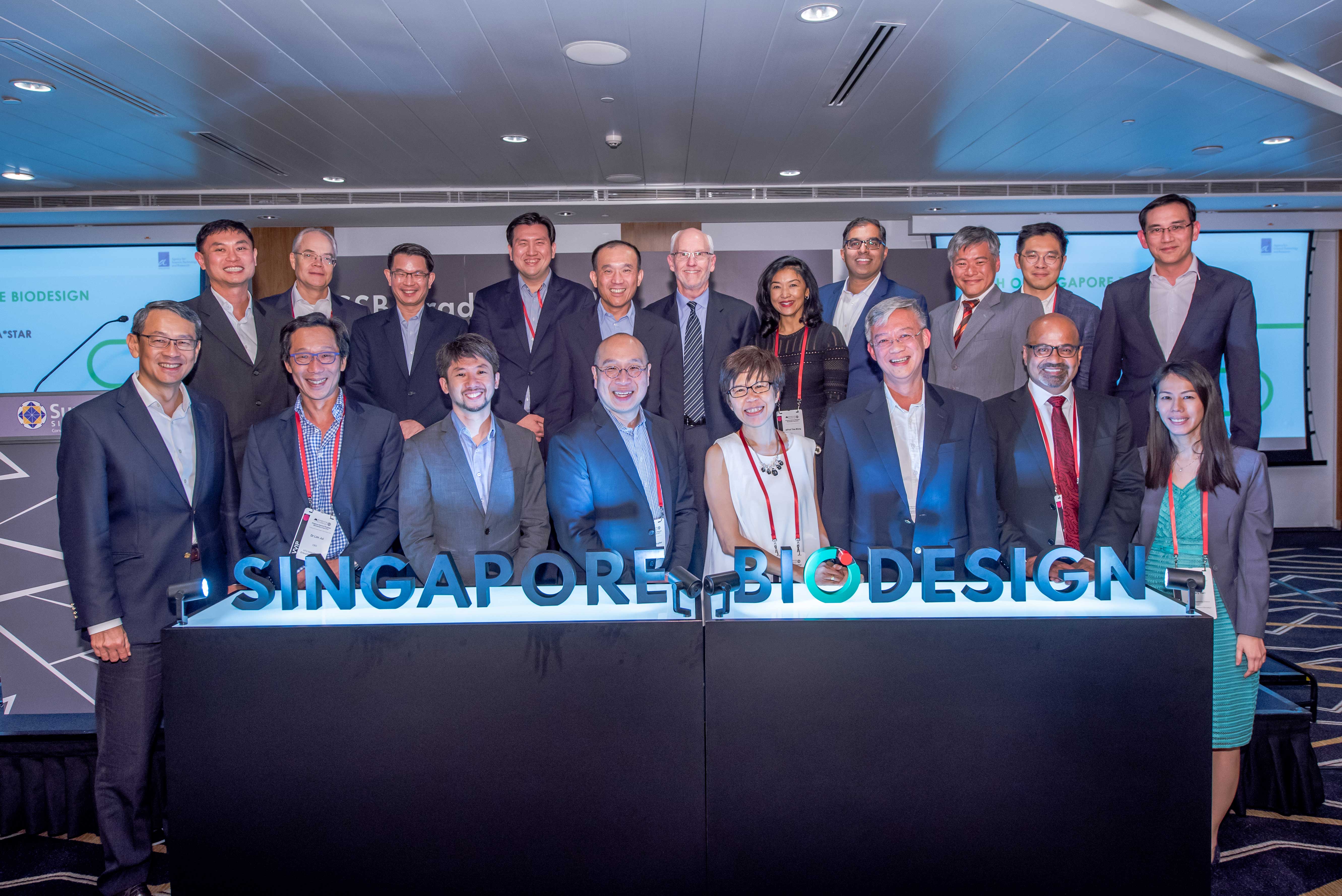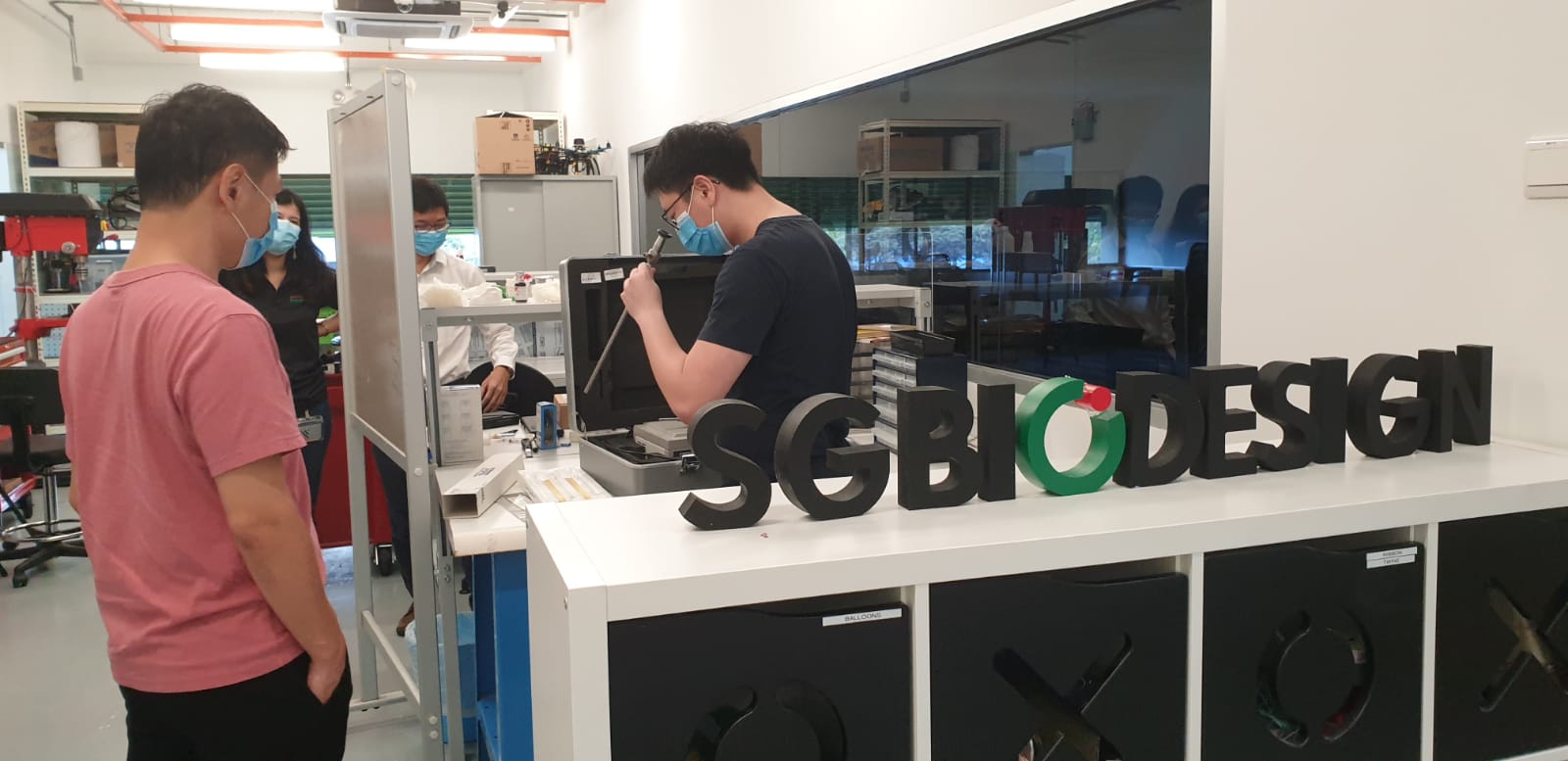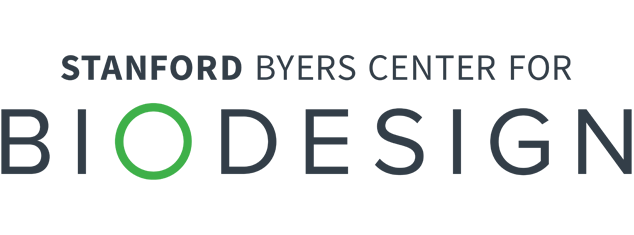Stories
Singapore Biodesign: Eleven Years of Growth Culminates in Prestigious Affiliate Status
 Singapore Biodesign and Stanford Biodesign Leaders
Singapore Biodesign and Stanford Biodesign Leaders
In 2021, Singapore Biodesign celebrated 11 years of training the next generation of health technology innovators for Asia. Over this time, the program has grown from a single class of fellows learning the biodesign innovation process to a robust capability development initiative that trains innovators, seeds projects, and has helped catalyze a vibrant medtech ecosystem in Singapore. In recognition of these many accomplishments, Stanford Biodesign has awarded Singapore Biodesign affiliate status; a special designation that has been earned by only one other program in Stanford Biodesign’s 20-year history.
“Affiliate status is reserved for programs that have achieved a particularly distinctive level of excellence,” said Paul Yock, MD, the founder and director of Stanford Biodesign. “These are programs where the quality of the education, the output of the fellows, and the sustainability of the offering are extraordinary.”
“We have watched as Singapore Biodesign has grown to achieve significant impact,” added Christopher Shen, MD, executive director of Singapore-Stanford Biodesign. “We are particularly impressed with the high quality of the fellows trained, the career impact of the graduates, and the strong representation of alumni fellows in leading the Singapore Biodesign team.”
Singapore Biodesign was launched in 2010 as Singapore-Stanford Biodesign, a joint partnership between the Agency for Science, Technology and Research (A*STAR), the Economic Development Board (EDB) and Stanford University. Initially, fellows selected for the program trained for part of the year at Stanford, where they learned and practiced the needs-based biodesign innovation process, then returned to Singapore to do needs finding and device innovation for Asia. Fellowship alumni not only went on to successful careers as innovators and entrepreneurs, but in many cases, continued to play an active role in the Singapore program as teachers and mentors.
 Innovators at work at Singapore Biodesign.
Innovators at work at Singapore Biodesign.
This alumni participation, combined with strong program leadership and the support of A*STAR and Singapore’s National Research Foundation enabled Singapore-Stanford Biodesign to “graduate” to independent status in 2018. The program was renamed Singapore Biodesign, signifying the program’s shift to be more Asian-centric and focused on the goal of delivering economic benefits and healthcare value through healthtech innovation training.
Now a national-level talent development platform hosted by A*STAR, Singapore Biodesign has trained more than 750 innovators, including 42 fellows, 390 university students, and 280 industry professionals. More than 25 novel technologies have been funded and 5 have already reached patients. Singapore Biodesign also has built a dynamic local ecosystem that includes academic partners, a motivated industry network, clinical partners, and a regional network of immersion partners. Just this year, the program graduated its first cohort of faculty fellows, who are motivated faculty, clinical, and program leads who learned the biodesign methodology with the goal of achieving wider institutional, programmatic and educational impact.
In announcing the affiliate designation, Yock recognized key contributors to Singapore Biodesign’s success, including Ms. Chan Lai Fung, Chairman of A*STAR and Permanent Secretary for the National Research Foundation and Public Sector Science & Technology Policy and Plans Office; Mr. Frederick Chew, Chief Executive Officer of A*STAR; Professor Tan Sze Wee, Assistant Chief Executive, Enterprise, A*STAR; and Mary Kan, MD, Singapore Biodesign Program Director. “Collectively, you have done a masterful job of launching Singapore Biodesign onto the world stage,” said Yock.
“Our long-standing partnership with Stanford Biodesign has been crucial for the development of Singapore-Stanford Biodesign into Singapore Biodesign,” said Prof Sze Wee. “The sharing of best practices and grooming of next generation innovators and enablers in the Biodesign methodology have contributed to Singapore’s Health and MedTech (HMT) talent pipeline. Singapore Biodesign is now recognized as the national manpower programme for developing innovation and enterprise talent to contribute to the HMT sectors for Singapore.”
“Singapore Biodesign is proud to be a Global Affiliate member of the Stanford Biodesign program,” added Prof Wong Tien Yin, Chairman, Singapore Biodesign Steering Committee. “The Singapore Biodesign program is ready to tackle new and emerging healthcare challenges in Asia, with an aim to train the next generation of healthcare innovators, engineers and leaders in Singapore and beyond.”
